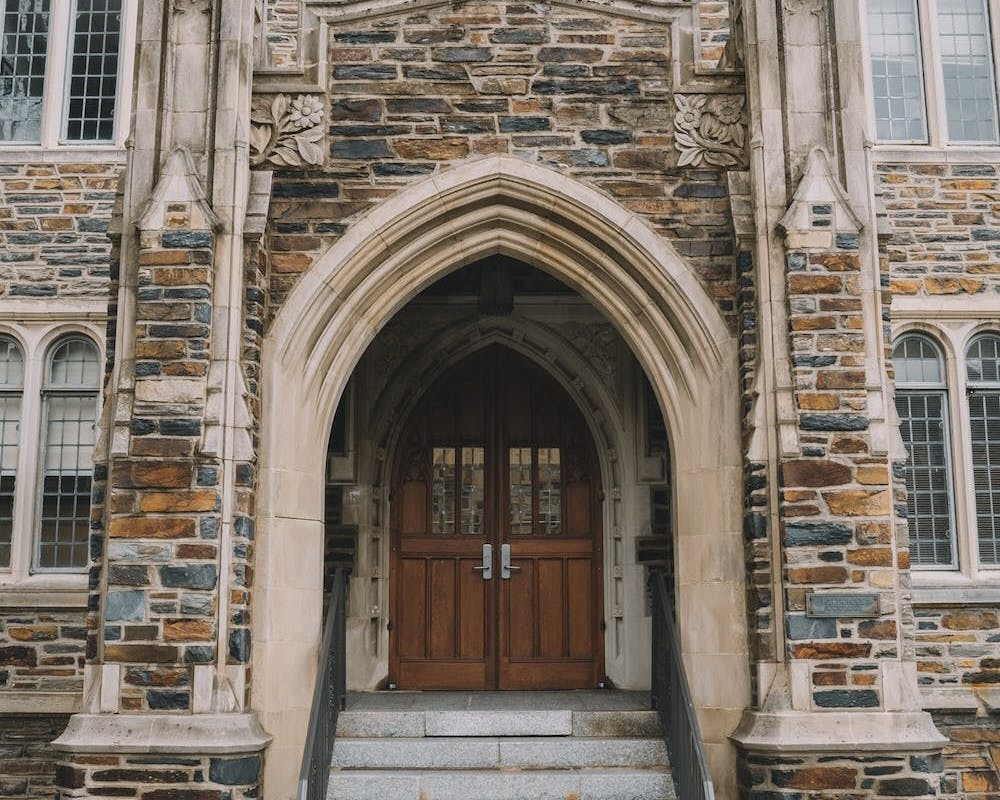Arts & Sciences Council passed a new Trinity curriculum in its Thursday meeting, which will come into effect for incoming students starting fall 2025.
The curriculum, which passed in a 32-1 vote, creates new general education requirements for Trinity students at Duke that incorporate a greater focus on the humanities and a new first-year program that links together three courses by topic.
“I'm really excited that this new curriculum is going to double down on the arts and humanities,” Dean of Trinity College Gary Bennett said. “I'm pretty confident that that's the balm our students need right now.”
The current Trinity undergraduate curriculum was created in 2000, with minor changes made in 2004. Duke’s last attempt at a curriculum update in 2017 failed to reach a consensus.
The current push to revise the curriculum began in February 2022 with the creation of the Trinity Curriculum Development Committee after then-Provost Sally Kornbluth and then-Dean of Trinity College Valerie Ashby charged the Council with renewing the curriculum.
The TCDC first proposed the new curriculum in January 2024. After council members provided feedback, they presented a new proposal in March.
The new curriculum will replace the current six Modes of Inquiry and five Areas of Knowledge requirements with six new categories, including Creating and Engaging with Art (CE), Humanistic Inquiry (HI), Interpreting Institutions, Justice and Power (IJ), Investigating the Natural World (NW), Quantitative and Computational Reasoning (QC) and Social and Behavioral Analysis (SB). Students will complete two courses in each of the six categories to fulfill their graduation requirements.
The new categories will place a greater emphasis on the arts and humanities in the Trinity undergraduate curriculum, as the current Arts, Literature & Performance requirement is split into CE and HE. The other new categories closely resemble the current other four Areas of Knowledge requirements.
According to the 2024 Curriculum Proposal, the current Trinity model invites “gamification,” with “students naturally seek[ing] out courses that count toward more curricular codes, and faculty are incentivized to request as many codes as possible for their courses.”
The new proposal seeks to mitigate this problem by scrapping the Modes of Inquiry and creating “century courses” that allow Trinity students to fulfill two required courses with a single century course for up to two of the six general education categories. These courses are intended to incentivize students to take high-quality and engaging courses instead of hunting for classes that fulfill the highest number of graduation requirements.
“Really what [the students] need is slow learning. They need reflection, they need consideration,” Bennett said. “They need deliberation, they need to be confronted by the notion that the greatest ideas of our time have been wrestled by some of the greatest minds of our time for centuries, without resolution.”
The first-year experience and course requirements will also be impacted by the introduction of “Constellations,” a set of three interconnected courses that explore a topic from multiple perspectives. The courses include one first-year writing course and two other courses. At least one of the non-writing courses must be taken in the first semester, and at least one must involve small-group learning.
The new "Constellation" courses focus on the importance of building connections, encouraging curiosity and promoting epistemic humility. The program will encourage the formation of “cohorts” during the first-year experience to help ease students’ transition into college.
The new curriculum also requires all students to take at least two foreign language courses, doing away with students’ current ability to take one 300-level or higher language course to fulfill the requirement.
Such changes to the Trinity curriculum will require significant efforts in the coming months, and Bennett expressed his commitment to providing adequate resources for its implementation.
Bennett acknowledged that the Council “see[s] the need for funds for new course development” and that he has already secured $1 million. Bennett added that Trinity leadership will continue to raise funds to aid in the curriculum’s implementation and establish a new office to aid in the transformation of the first-year experience.
“We're dedicated to the task of helping to support colleagues as they both develop the courses and also as they are instructing them,” Bennett said.
Editor's Note: This article was updated at 10:45 a.m. Friday morning to say that Trinity leadership will manage the fundraising process for implementing the new curriculum — not the Arts & Sciences Council, which does not raise funds. The Chronicle regrets the error.
Get The Chronicle straight to your inbox
Signup for our weekly newsletter. Cancel at any time.

